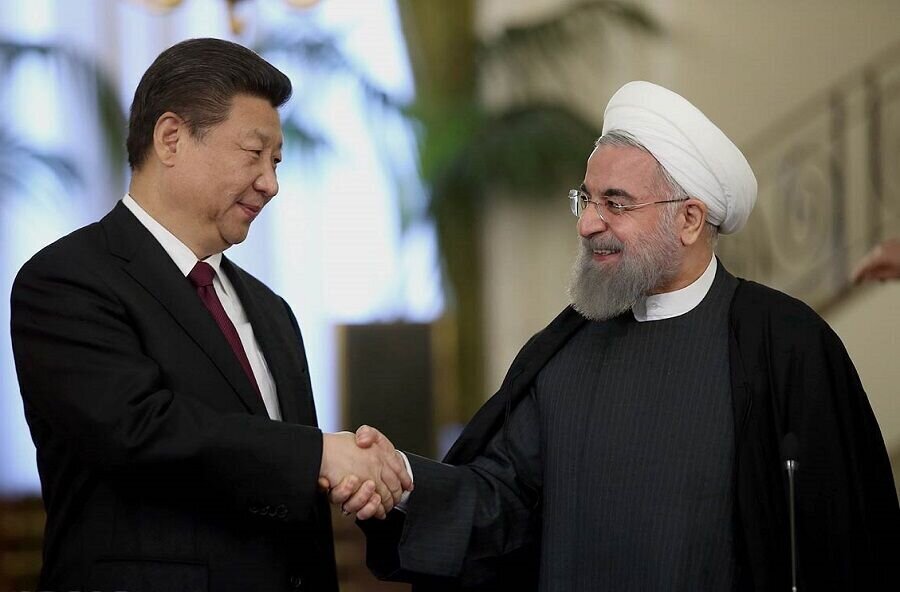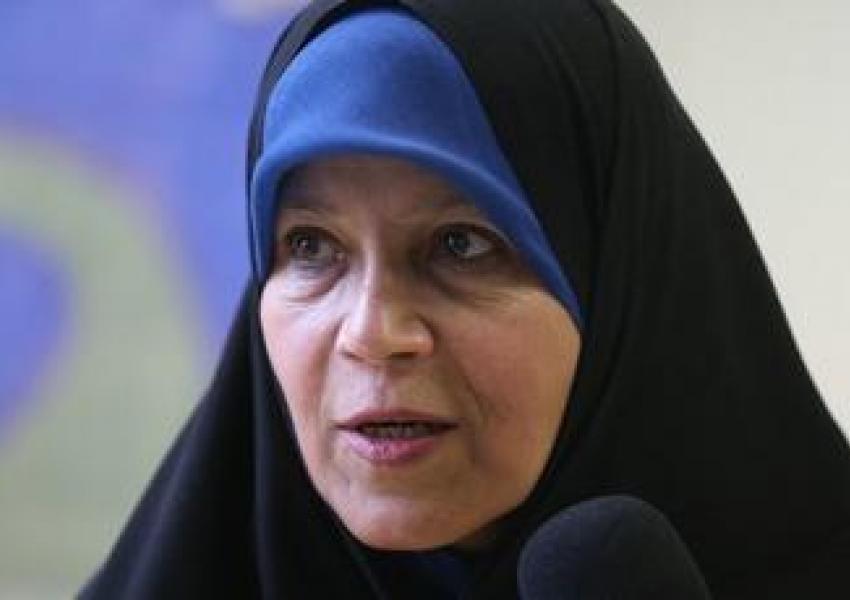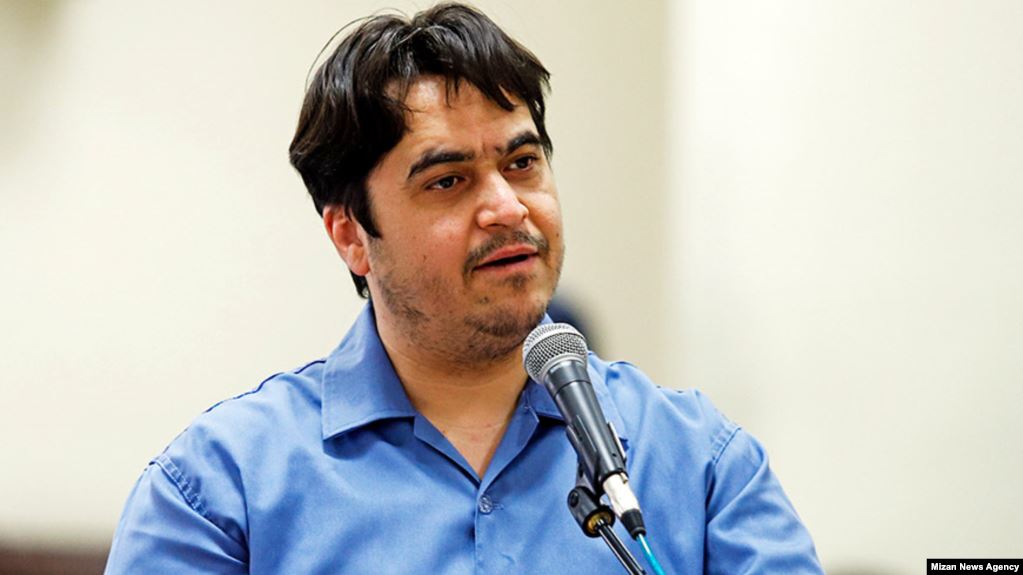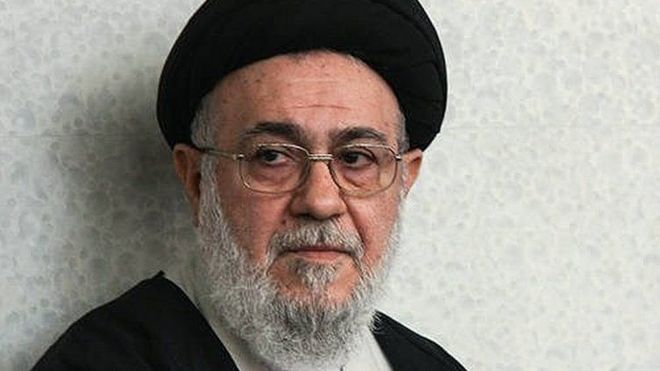
Let us Deal With the Main Problems, not the Minor Issues
The editorial of Arman Melli written by Mohammad Taghi Fazel Meibodi, a religious scholar from Qom’s seminary, focuses on how ignoring major economic problems – and dealing with minor issues – has been costly for the people.
Imam Ali said that one of the main functions of the government is to deal with minor issues and to overlook critical problems. This is what has been going on in Iran for several years. The government’s main concerns have been about who goes to stadiums and who rides bicycles. But we have neglected the political and economic spheres. Iran’s economic disease is not a minor one; it is a deeply rooted problem. Sanctions must be lifted and Iran must have a stronger relationship with the world.
Iran’s large-scale economic policies, as well as its diplomacy, have not worked. The inflation rate has increased, the housing issue has become more problematic, and the youth have grown more frustrated. Marriage and procreation have decreased, while the rate of divorce has increased. Meanwhile, all we have done is sit and wait to see who commits a sin so we can put them on trial.
The economy is not a top-down problem; economic problems will not be solved with moral guidance or executive decisions. The economy is based on supply and demand in society, as well as growth in production.
All institutions in the country must work together to solve the problems. Right now, most legislators are taking a stance against the government, while the government’s policies are not consistent with Parliament. As a result, the people will have to pay the price and the inflation rate will increase. Most of these people who will pay the price live in houses in northern Tehran, and they will fight with each other.
The way Iranian politicians think must change. For 40 years, the housing problem has not been resolved, even though people were promised homes at the beginning of the revolution.
If Iran’s foreign policy issues are resolved, nothing will change. Economy, politics, and international relations are closely inter-related with one another.
Back-breaking Soaring Prices
The editorial of Mostaghel focuses on how growing economic problems have impacted the lives of the Iranian people.
Currency market fluctuations, hikes in the prices of goods and services have resulted in life becoming more unbearable for the Iranian people. We all know about the coronavirus pandemic and global economic problems, however, economic conditions in Iran are worsening day by day. Back-breaking soaring prices have put the Iranian people under tremendous mental strain; prices are skyrocketing while incomes are fixed and households are under the poverty line.
In recent days, the dollar’s price passed 20,000 tomans, and chicken was sold for 17,000 tomans per kilo. The prices of several goods and services have skyrocketed, widening the gap between the rich and the poor.
The new wave of increasing prices is not limited to forex and gold, but it can also be seen in the housing sector as well. The prices in this sector are high. Rental prices have skyrocketed so much that no one can afford it, while field reports show that in some cases, two households have rented one housing unit because they cannot afford to pay the rent individually.
There are a few factors contributing to the skyrocketing prices. Political games and unhealthy political rivalry in the country have created an atmosphere for some to take advantage of rent-seeking and make easy money. Despite the fact that judicial and government officials have always spoken of the need to tackle such behavior, nothing has been done so far.
The issue of soaring prices has become a serious problem for the Iranian people, as we are witnessing an economic crisis, a continuous increase in the cost of living and rising unemployment rates. The government must tackle soaring prices and economic corruption to stop the widening gap between the rich and the poor.
Economic Instability and Its Reasons
The editorial of Arman Melli addresses economic instability in Iran – in both domestic and international domains.
An increase in the forex rate, a decline in the value of the national currency, and the inflation rate increasing are all outcomes of a lack of economic stability. This instability is due to various reasons – one of which is a lack of coordination among policy makers dealing with economic, social, and cultural issues in different branches of the government.
For instance, the Parliament’s commissions have written a letter and threatened the government. If the Parliament has a new plan to improve economic conditions, it should be presented, instead of blaming the government for the current economic instability. The way the Parliament deals with the government also causes instability.
A lack of economic transparency plays a role in economic instability. Today, Iran’s economy needs investment for economic growth. One reason why there has been no investment and Iranians living abroad do not invest in the country is because of economic instability. According to estimates, Iranians overseas own approximately $400 billion to $800 billion. Now if only 10 percent of this money was invested in Iran’s economy, it could lead to stability, increase investment, and stimulate GDP.
Another way to create economic stability and growth is through Iran’s relationship with the international community. The Expediency Council’s rejection of the FATF bills has had a considerable negative impact on this relationship. If the bills are approved, this will immediately have a significant impact on Iran’s economic conditions, as well as on the price of forex and gold coins.
If Iranian officials decide to act in accordance with international rules and regulations, it will certainly impact the rising price of the dollar in the currency market.
What is Going to Happen to the New Parliament?
The editorial of Ebtekar news criticizes the so-called “revolutionary Parliament” for its insignificant achievements so far, making a dire prediction that it will not be able to solve livelihood issues.
It has been over a month since the 11th Parliament started its term. Most of the seats in Parliament belong to the so-called revolutionary parliamentarians. After the 6th Parliament (which was controlled by the “reformists”), the 7th, 8th and 9th Parliaments (that were controlled by the “hardliners”) and the 10th Parliament (which was a combination of both), the time has come for a revolutionary Parliament.
They had promised for years to form such a revolutionary Parliament while rebuking others for not doing their jobs. This Parliament with no strong minority has been very costly. And now their dream has come true: a Parliament that is made up of revolutionaries and “hardliners”.
After more than a month, this Parliament’s end result has become clear. During this time, its greatest achievements were re-naming a street after George Floyd, changing the name of Mehrabad Airport, holding a Quran recital session, chanting some immature – and in some cases, ridiculous – slogans. So, does this mean that all the commotion about taking a seat in Parliament was to do these trivial things?
During these years, we have come to realize that some believe that they know of a special kind of governance which can solve all the problems in the country. They have called their approach “revolutionary.” They have never published a manifesto outlining their governance plans; they have called it “jihadi management,” and have said that they have the cure for all the problems in the Islamic world.
They are now in charge of the Parliament. Now we can see what they were talking about; their achievements add up to nothing so far.
The question is: was this Parliament created to solve livelihood problems? The country’s problems highlight that it is not the right time for slogans and illusory claims. One cannot create a new form of governance overnight. If under these sensitive circumstances, they think they can solve the issues by changing the names of streets and chanting slogans, it is clear what the outcomes will be.

Ahmadinejad Warns Against Iran-China Signing a Cooperation Plan

A few days after the Iranian government drafted a 25-year cooperation plan with China, former President Mahmoud Ahmadinejad warned against signing a “secret plan with foreign countries against the interests of the country and people.”
Dolet-e Bahar website, which is closely linked to Ahmadinejad, quoted him as saying, “I have heard that they are negotiating to sign a 25-year contract with another country, and no one knows anything about it.” Without naming any person, Ahmadinejad added, “Are you the country’s owner that you can give away from the people’s pocket?”
Two days after drafting a 25-year comprehensive cooperation plan with China, Iranian Foreign Minister Mohammad Javad Zarif tweeted in Chinese announcing a video call with his Chinese counterpart with regard to a “strategic comprehensive partnership” and “advancing the 25-year bilateral cooperation plan.”
No official information has been released about this plan between Iran and China; it is not even clear if it is signed as a partnership or a treaty between the two countries – which will then need to be passed by the Parliament.
Tabnak website, closely linked to Mohsen Rezaee, secretary of the Expediency Discernment Council, has mentioned that finalizing this document “can mean a full turn towards the East. In fact, it might be the final choice [for Iran]: preferring the East to the West.”
Other media outlets have said that the new document is the same “Comprehensive Strategic Cooperation” signed in 2016 between Iran and China, worth $400 billion, but stating that in the new negotiations, “secret provisions have been added to it.”
While many call this document a dishonorable “colonial contract” and against the interests of Iran and the people, Iran’s Foreign Ministry spokesperson has said it is a strategic document, calling it “honorable and to the advantage of both Iran and China. “When the document is finalized,” he added, “it will be published.”
Faezeh Hashemi: The Islamic Republic is Neither Religious, nor Revolutionary

The daughter of the late Hashemi Rafsanjani, one of the founders of the Islamic Republic, took part in a webinar held by Stanford University. She pointed to pressure on women and the political situation in Iran. She said, “Right now we are neither a religious government, nor a revolutionary state.”
In this webinar hosted by Abbas Milani, head of Iranian Studies at Stanford University, Faezeh Hashemi said, “I believe that by the Islamic state that we created, we did damage to Islam; governments cannot be defenders of ideologies.”
As for the view of Iranian “reformists” towards women, Faezeh Hashemi stressed that they are part of the problem; male “reformists” do not believe in legal equality between men and women. They themselves, she added, are an impediment and do not make any efforts in this matter.
With regard to a decline in voter participation in elections, she said that the people have lost hope in the “reformists”. Commenting on the protests held in 2017 and 2019, she said that some “reformists” sided with the establishment, issuing statements that were not compatible with the realities on the ground.
She said that women have suffered due to Iran’s patriarchal culture and an unrealistic interpretation of religion. In addition, power has been limited to men and there is a lack of courage. She insisted that because of all these issues, “our reformists prefer not to enter the domain of women’s issues.”
When asked about the compulsory hijab, Faezeh Hashemi said that “my hijab is traditional, my religion is traditional, but I am against the compulsory hijab. Reza Shah made a mistake when he made removing the hijab compulsory; we made the same mistake when we made wearing the hijab compulsory.”
Faezeh Hashemi published the first women’s magazine in Iran. She was a legislator in the Parliament for one term. In 2011, she was sentenced to six months in prison and was banned from participating in any political, cultural and media activities for five years.
Death Penalty Handed to the Founder of Amad News and Protesters

Heavy sentences were handed down to protesters, including Rouhollah Zam, the founder of a Telegram channel called Amad News.
The head of the Justice Department in Esfahan province announced that eight individuals arrested during Iran’s November protests were charged with “corruption on earth” – which is punishable by death.
Mohammad Reza Habibi added, “If any violation is committed, like what happened in 2009, 2017 and last November, we will definitely confront the rioters involved in it.” He pointed out, “The eight cases related to the November protests have been finalized and their corruption on earth charge has been proven.”
Habibi made his remarks after Iran’s Supreme Court confirmed the death sentences handed down to three individuals arrested during the November 2019 protests last week. These protesters have been sentenced to death on charges of “participation in destruction and arson” and “enmity against God,” among other charges.
Last November, oil price hikes triggered widespread protests in many cities in Iran. There was a severe crackdown on protesters and according to statistics, between 300 to 1,500 were killed during these protests and thousands were arrested.
Amnesty International had earlier warned that those arrested during the November protests could be tortured, ill-treated and heavy sentences and long imprisonments would be handed down to them.
What is more, Rouhollah Zam, the founder of Amad News, has been sentenced to death, according to judicial spokesman Gholam Hossein Esmaili. Esmaili noted that Zam was charged with “corruption on earth,” adding that the court sentence is not final and can be appealed.
Zam was arrested by the IRGC in October 2019. His channel, founded in 2015, played a major role in covering Iran’s nationwide rallies against the government of Iran in 2016-17.
His last court session was held on June 9 during which Zam denied these charges stressing that he was just a journalist.
Reporters Without Borders previously had called Zam’s trial unjust, raising the alarm bell of a possible death sentence being issued against him.
Khamenei is Responsible for the Country’s Mismanagement, Says a Senior Cleric

The Secretary General of the Association of Combatant Clerics Mohammad Mousavi Khoeiniha has written a letter to the Iran’s supreme leader, saying the country’s current conditions which cannot last much longer are due to “the method of management at the highest level.”
This “reformist” cleric said the “legitimacy” of the government of Iran has been eroded in many people’s minds. Khoeiniha pointed to “growing inflation” and the “low incomes of a considerable part of society” as the reasons for people losing trust in the government.
Mohammad Mousavi Khoeiniha added that if the country’s governance is based on conventional calculations and analysis, then the people should have the right to criticize it and call for reform. “However, if the decisions made in the past decades were inspired by some unconventional sources which are accessible only to the privileged servants of God,” then what is happening to the people, the country and the Islamic Republic is “predestined.”
Mohammad Mousavi Khoeiniha has held different official positions, including the post of prosecutor general and deputy Parliament speaker. Following the letter, Khoeiniha was severely criticized by Khamenei’s supporters and the “reformists”.
Ahmad Khatami, a member of the Assembly of Experts, exonerated the supreme leader, stressing that Khamenei has no responsibility in the economy and the executive branch is in charge of economic issues.
It must be noted that in Iran the three branches of government, as well as several economic and non-economic entities operate in accordance with the supreme leader’s decisions.
“Reformists” also criticized Khoeiniha, saying his letter contradicted national unity and solidarity.
